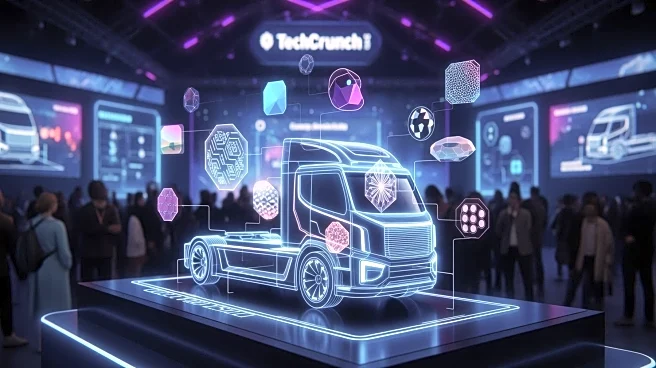What's Happening?
Slate Auto, led by CEO Christine Barman, is set to unveil its new all-electric truck at TechCrunch Disrupt 2025, scheduled from October 27-29, 2025. The event is expected to draw over 10,000 tech founders,
investors, and industry leaders globally. Barman, with over 20 years of experience in the automotive industry, has previously held significant roles at Chrysler and Ford, focusing on engineering, systems, and product development. Slate Auto's mission is to produce affordable and customizable vehicles, and the new electric truck is a testament to this vision. The presentation will highlight the technological advancements and customization options available in Slate Auto's product line.
Why It's Important?
The unveiling of Slate Auto's electric truck at TechCrunch Disrupt 2025 is significant for several reasons. It represents a shift towards more sustainable transportation solutions, aligning with global trends in reducing carbon emissions. The focus on customization could set a new standard in the automotive industry, potentially increasing consumer engagement and satisfaction. This development may also influence other automakers to prioritize personalization in their vehicle designs. Additionally, Slate Auto's participation in such a high-profile event underscores the growing importance of electric vehicles in the tech and automotive sectors.
What's Next?
Following the unveiling, Slate Auto aims to leverage the exposure from TechCrunch Disrupt 2025 to expand its market reach and attract potential investors. The company plans to continue innovating in electric vehicle technology and customization, potentially influencing industry standards. Stakeholders, including consumers and competitors, will likely monitor Slate Auto's progress and market reception closely. The event may also spark discussions on the future of electric transportation and customization trends in the automotive industry.
Beyond the Headlines
Slate Auto's approach to vehicle customization could have broader implications for consumer behavior and brand loyalty in the automotive sector. By allowing personalization, the company may foster a deeper emotional connection between consumers and their vehicles, potentially leading to increased brand loyalty and repeat purchases. This strategy could also influence other industries to adopt similar customization models, impacting product design and marketing strategies across various sectors.











